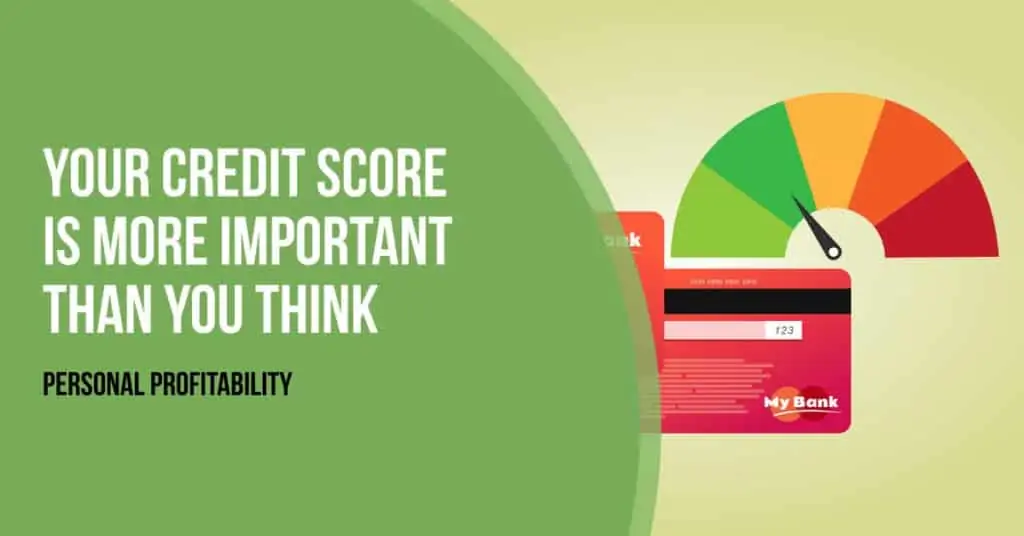I am completely debt free. I own my car, my house, and I have absolutely no student loans. I never plan to borrow another dime in my life, but I still worry about my credit score. Initially, this might seem like an odd statement, but your credit score is more important than you might think. It is used for far more than just getting a loan on a car or house. In fact, there are four great reasons to keep your credit score as high as possible.

1) Impacts Your New Job Opportunity
If you have a below-average credit score, then you realize that you might pay a higher interest rate for a car loan (even though I would never suggest doing that), but who would have thought that your bad credit history could impact a future job opportunity? Most people don’t consider this, but it’s absolutely true. This is one of the many reasons why a credit score is more important than one might think.
While employers can’t pull your actual credit score, they often do review your credit history. If they discover that you often miss payments on your bills or have questionable transactions, then they might deduce that your character is suspect. After discovering this, they could choose not to hire you and instead hire someone else that has similar qualifications but has a glowing credit report. This probably doesn’t happen all that often, but it definitely CAN happen when you are on the hunt for that new job. Be sure to check your credit history once in a while to be sure that you don’t get caught in this situation.
2) Affects Your Insurance Rates
Another area we hardly think about is insurance. Insurance is one of those things that we sign up for because we have to, and then we just ignore it for many years because it’s confusing, boring, and can be a hassle to dig into. However, if you have bad credit, your car insurance and home insurance might be almost double what they have to be. Again, bad credit is a red flag for those that are trying to understand your character. If their model shows that people with poor credit history get into more wrecks and have more claims than those with sparkling credit, then you’ll have to pay more, plain and simple.
3) Impacts the Need for a Security Deposit
When I was young and had very little credit history, I remember having to pay security deposits for things like my new cell phone plan and the utility bill. I didn’t think much about it at the time – I just assumed everyone had to do the same thing. As I think back to those days though, I had to put $250 down on my cell phone bill because they checked my credit history and saw that I had no credit (which is equivalent to bad credit in their eyes). After a full year of payments on my phone service plan, I was able to get my $250 back. The same was true with my utility bill. I was living in a house with five other guys during college and I never had any other bills under my name before. Since they had no record of me or my past history, they required that I pay $200 in order to transfer the utility bill into my name.
This doesn’t sound like a huge deal, but when you have bad credit, quite a lot of your money will get tied up into security deposits when it should be in an account or an investment earning you more money! Bad credit is not only costing you money, but it’s keeping you from earning more.
4) Affects Banking Services and Fees
Banks love customers that are trustworthy and consistently pay their bills on time. On the flip side, they aren’t so fond of those that constantly cause them headaches. If you have bad credit, then you likely won’t qualify for those free bank accounts. Instead, they might require you to pay a small fee each month to house your money with them. And, in addition to this, you’ll likely get high fee credit cards offered to you in the mail.
Having bad credit is a terrible thing, even if you don’t want to borrow money. Keep an eye on your credit history at least once a year and be certain that it is accurate. If there is a mistake that is hurting your credit, do everything in your power to get it removed so you can keep your credit history clean. After all, it could make the difference between a high paying job with a large cash flow and a terrible job with a million fees and security deposits. Which would you rather have? Check your credit today.

This post was originally published on April 16, 2015, and updated on November 27, 2021.


